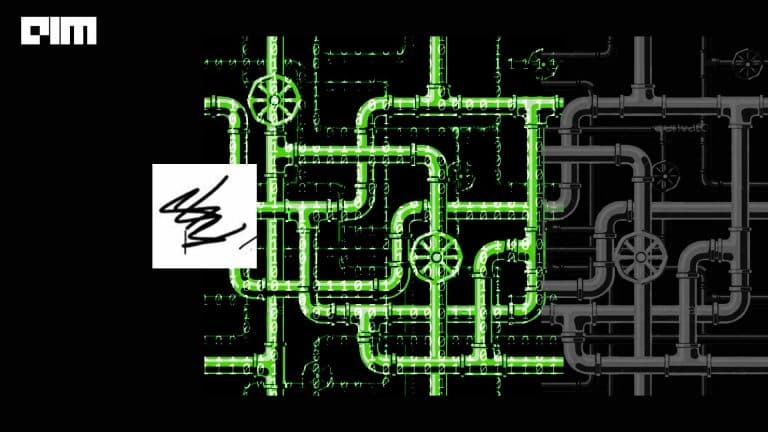When deciding what to wear for an occasion, we do not try every dress in our possession but rather select our outfits depending on the nature of the event and our dressing sense. Material scientists apply a similar method for developing novel materials with unique properties required in their specific fields of application, such as renewable energy. However, the path to discovery involves high costs and takes many years. For example, in chemical sciences, discovering desirable new molecules takes around ten years and investments up to $10-100 million.
Materials discovery and development provides unique challenges and opportunities for developing next-gen artificial intelligence (AI) systems. Researchers have been trying to integrate materials science with computer technologies to dramatically accelerate the discovery and development of new materials. Both research institutes and large corporations have invested heavily in developing new materials using automated systems at rates many magnitudes higher than natural.
Previous Progress in Materials Discovery
A team of researchers at MIT had previously discovered a new way to expedite the entire discovery process of new materials using a machine learning system. They were able to shortlist eight promising materials for energy storage in flow batteries from among millions of available options. As per the researchers, this process, if done by conventional analytical methods, would have taken more than 50 years, but the team accomplished it in five weeks. IBM has created Molecule Generation Experience (MolGX), a cloud-based, AI-driven platform to design novel molecular structures in chemical sciences to discover new materials. Compared with the usual circumstances, it accelerates the development 10 to 100 times.
New Milestone in Material Sciences
Researchers at Cornell University have developed a new AI tool to rapidly explore and identify what it takes to “whip up” new materials. Scientific Autonomous Reasoning Agent (SARA) integrates robotic materials synthesis and characterisation and a hierarchy of artificial intelligence and active learning (AL) methods to efficiently reveal the structure of complex processing phase diagrams, making materials discovery vastly quicker. It is published in the scientific journal Science Advances titled “Autonomous materials synthesis via hierarchical active learning of non-equilibrium phase diagrams.” SARA’s vision is to develop a fully autonomous high-throughput materials discovery and exploration framework by integrating robotic high-throughput materials synthesis with AI instances.
Though this paper was published on December 17, 2021, under lead authors Sebastian Ament and Maximilian Amsler, the idea behind developing SARA was conceived a while back. The prototype or concept of SARA was designed in 2017 by a multidisciplinary team co-led by Michael Thompson, the Dwight C. Baum Professor of Engineering, R. Bruce van Dover, the Walter S. Carpenter, Jr., Professor of Engineering; both in the Department of Materials Science and Engineering (MSE), among others.
For applications of SARA, researchers are focussing on metastable inorganic materials. Metastable materials have unique properties with specialised applications but transform over time into their stable equilibrium state. Since they do not exist naturally, identifying them can be costly and labour-intensive. Professor Thompson explained the choice of materials by citing that iron and silicon, two of the most useful raw materials in the modern world, are metastable in nature. He reasoned they are looking for such new metastable materials with unique structures and critical properties. SARA, the researchers said, can cut the experimental time necessary to characterise a new materials system by one to two orders of magnitude – from days to hours and hours to minutes.
SARA can conduct these searches at an incredible speed; using a minute amount of a material; it can analyse its different phases and temperature-related properties by lateral gradient laser spike annealing process. It then proceeds to the subsequent experiments, completes it quickly, and repeats the whole process. Each loop is completed in a matter of seconds. SARA is built using a set of nested AL loops based on specialised physics-inspired GP regression models to synthesise, characterise, and iteratively explore non-equilibrium synthesis phases.
As described by Professor Thompson, the computer is controlling the live experiment, processing materials under fixed conditions, and then characterising it before deciding on the next experiment based on the entire analysis of the material. These processes are all occurring in a very short period of time.
“So having figured out what the next experiment is, it actually does that experiment,” Van Dover said. “And then goes on and reinterprets and then comes up with another experiment – all without human intervention.” John Gregoire, Ph.D. ’09, a research professor at the California Institute of Technology and one of the core team members that developed the idea of SARA calls it a “self-driving laboratory” for creating novel materials.
Platforms such as SARA provide us with an unmatchable speed to discover novel materials for solving global problems. SARA’s autonomous execution of all steps necessary for developing new materials constitutes a grand vision of AI-assisted materials science.

























